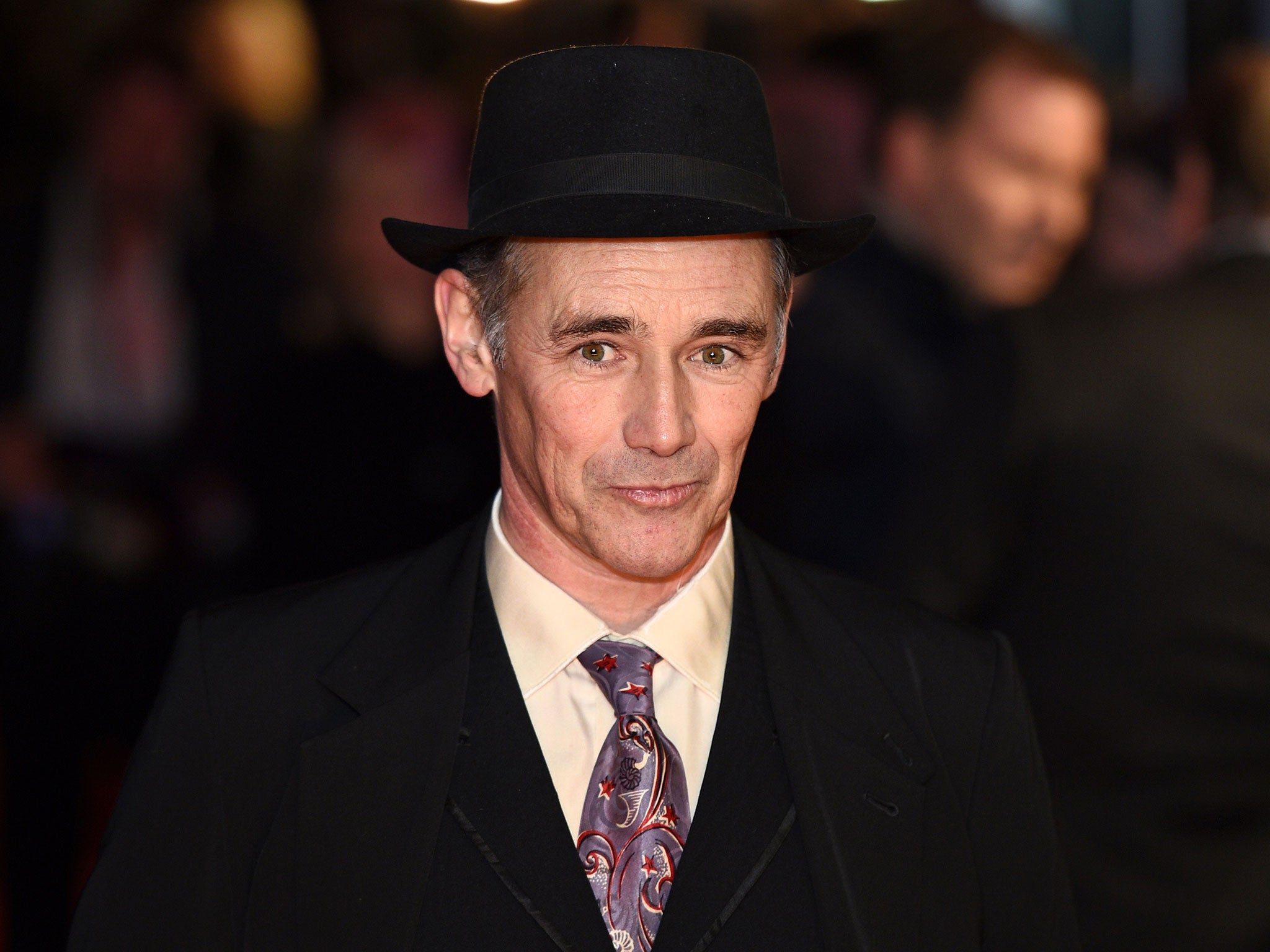Subsidised companies like the National Theatre and Royal Shakespeare Company charge 'way too much for tickets', says actor Mark Rylance
The multi award-winning actor said subsidies should be used to ensure plays are open to as wide an audience as possible

Your support helps us to tell the story
From reproductive rights to climate change to Big Tech, The Independent is on the ground when the story is developing. Whether it's investigating the financials of Elon Musk's pro-Trump PAC or producing our latest documentary, 'The A Word', which shines a light on the American women fighting for reproductive rights, we know how important it is to parse out the facts from the messaging.
At such a critical moment in US history, we need reporters on the ground. Your donation allows us to keep sending journalists to speak to both sides of the story.
The Independent is trusted by Americans across the entire political spectrum. And unlike many other quality news outlets, we choose not to lock Americans out of our reporting and analysis with paywalls. We believe quality journalism should be available to everyone, paid for by those who can afford it.
Your support makes all the difference.Mark Rylance, the actor, has criticised subsidised theatre companies including the National Theatre and the Royal Shakespeare Company for charging “way too much” for tickets.
While the National has a long track record of offering discounted seats, the Wolf Hall star said it had a duty to cut prices further in return for receiving state funding.
The multi award-winning actor said subsidies should be used to ensure plays are open to as wide an audience as possible.
“You can’t have the RSC and the National receiving millions of pounds of money without a lower price, in my feeling,” he told The Stage. “A lower price should be part of it.”
He continued: “It absolutely has to be accessible this stuff. And that should be the condition of the subsidy”. He spoke approvingly of the Globe Theatre, where groundling tickets cost £5 and there is “a diverse audience of young people and all kinds of mixed culture people in the audience”.
The National Theatre introduced £10 tickets for seasons of plays, subsidised by the currency exchange firm Travelex, in 2003. The four plays in this year’s Travelex season will release 100,000 tickets at £15 each. For productions outside of the season, the ticket prices range from £15 to £55.
“We’re committed to sharing our work with as many people as possible,” a spokeswoman for the National said. “We agree with Mark that affordable ticket pricing plays an important role in that, and use our public funding to maintain artistic risk-taking, accessibility and diversity.”
According to its most recent accounts, the Arts Council England grant for the National amounted to £17.2m for 2013/2014. The RSC received £15.7m from the Arts Council in the same period, a quarter of its total income. The ticket price ranges from £8 to £70 for its production of The Merchant of Venice in the Royal Shakespeare Theatre.
A spokeswoman for the RSC said it has offered £5 seats to 16 to 25-year-olds for the past decade, as well as discounted tickets for schools and families.
It recently emerged that the most expensive ticket in the West End had breached the £200 barrier, with The Book of Mormon charging £202.25 for its top seat. Rylance added that he was “very much” concerned about the rising ticket prices in London’s Theatreland.
He is due to star in Farinelli and the King in the West End, but added that all of his contracts for commercial theatre include a provision for affordable tickets.
Join our commenting forum
Join thought-provoking conversations, follow other Independent readers and see their replies
Comments